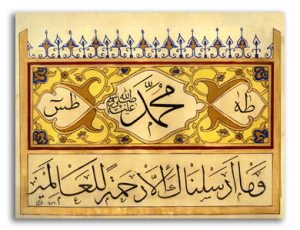 In the Name of Allah, the Most Gracious, the Most Merciful.
In the Name of Allah, the Most Gracious, the Most Merciful.
As-salāmu `alaykum wa-rahmatullāhi wa-barakātuh.
Muhtaram,
Tabligh is an Arabic word literally meaning “to convey”.
Contextually it refers to conveying the message of Islam. The word Tableegh is commonly used to refer to the Tableegh Jamaat movement in which people spend 3 days or 40 days or 4 months or 1 year in Tableegh.
Alhamdulillah, the Tabligh effort has been proven to be beneficial in conscientising people about their religious duties and reforming the lives of many people.
I fully support the noble effort of Tableegh.
However, it is important to note that the specific form and way of the Tabligh effort is not specifically mentioned in the Shariah. It is recommended. The actual mission of Rasullullah (Sallallahu Alayhi Wa Sallam) was Da’wah with Ta’leem (educating) and Tazkiyah (purification of the soul). The present form of Tableegh is one form of Da’wah. It is not the only way of Da’wah. To confine the obligation of Da’wah to the Tableegh movement is erroneous.
There are innumerable ways of Da’wah and all forms of Da’wah practiced within the confines of Shariah should be supported and complimented. It is therefore incorrect for some ardent supporters of Tabligh to claim an absolute right of Da’wah through Tabligh. Such an attitude is a great injustice to the broader concept of Da’wah and is an extremist attitude.
It is even worse to claim that Tabligh is more important than Tazkiyah. Tazkiyah is Fardh. The specific form and way of Tabligh is not Fardh. It is merely recommended. How can a recommended form of Da’wah be preferred over a Fardh act?
To reform oneself and cleanse oneself from the evil instincts within ourselves is Fardh.
It is also very unfortunate that we hear of reports from some elders of Tabligh Jamaat referring to Tazkiyah as a secondary issue, not so important, e.t.c.
How can a Fardh act not be of any importance at all? Such statements are incorrect and misleading. It is expected of the Ulama engaged in Tabligh and Tazkiyah to encourage people to do both, Tazkiyah and Tabligh.
If one does not go out for 3 days, 40 days or 4 months in Jamaat, he is not sinful and will not be answerable in the court of Allah (Subhanahu Wa Ta’ala). However, if one does not reform himself from pride, jealousy, ostentation, e.t.c, he will be sinful and answerable to Allah (Subhanahu Wa Ta’ala).
People actively engaged in Tabligh should realize this and adjust accordingly. One can never attain the Maqam (position) of Ihsaan by merely going out in Tabligh without reforming oneself. The singular approach of Tabligh whilst sidestepping the importance of Tazkiyah is an incorrect view and erroneous. It is misleading.
Tazkiyah is Fardh. The specific form of Tabligh is not Fardh. It is recommended. It is an effort we too support.
And Allah knows best.
Mufti Ebrahim Desai
Dar al- Mahmood
Source : http://tasawwuf.daralmahmood.org/muf…tabligh-jamaat










 In the Name of Allah, the Most Gracious, the Most Merciful.
In the Name of Allah, the Most Gracious, the Most Merciful.




